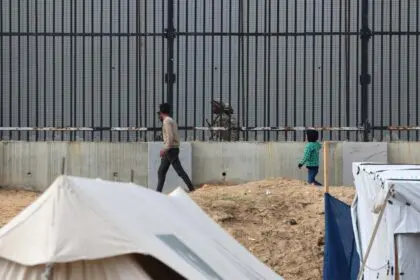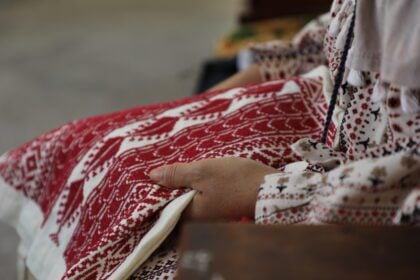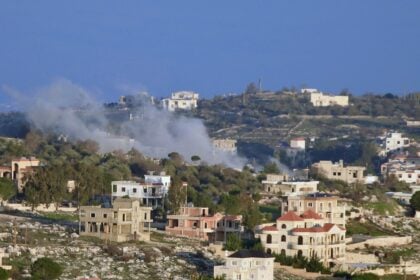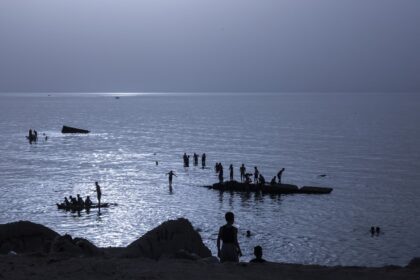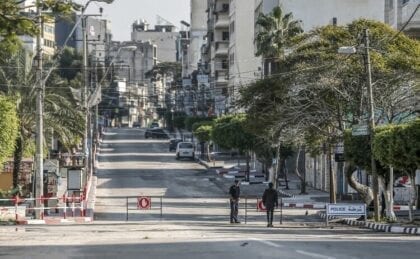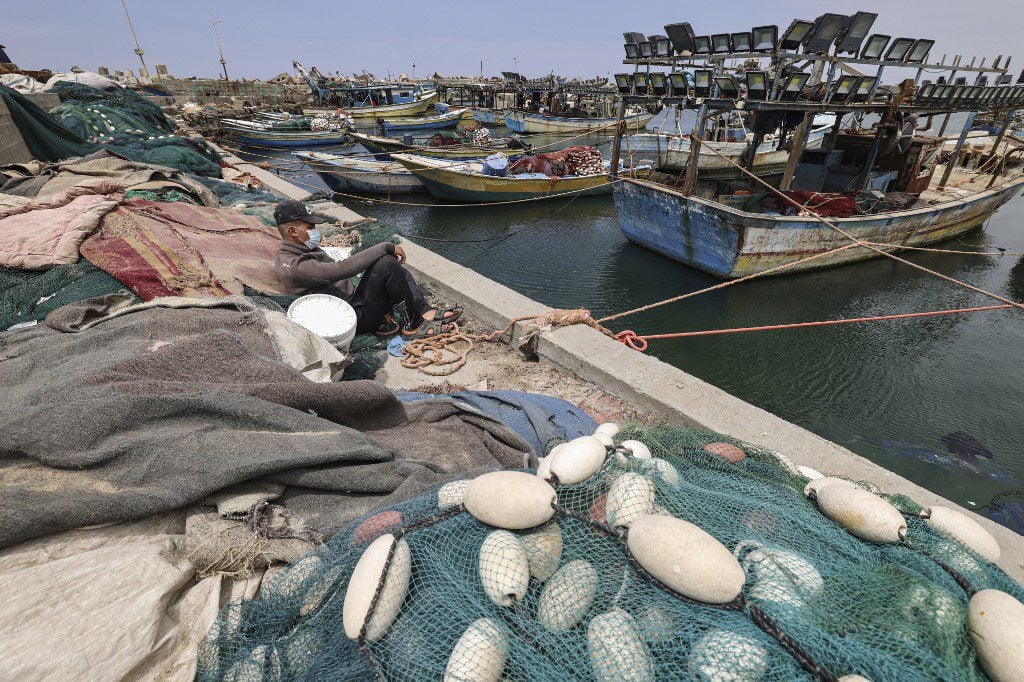
A man sits leaning on fishing nets by moored boats at the seaport of Gaza City on April 26, 2021. (Photo by MAHMUD HAMS / AFP)
Introduction
Since ancient times, Palestinians have been farmers, due to the presence of fertile soil and water. In the West Bank, the mountain range stretching from north to south causes rain to fall. However, the water quantity and quality have declined so drastically during the past decades that the river’s contribution to agriculture has greatly diminished.
In the past, farmers lived in an autarkic society. This changed from the middle of the 19th century as a result of increasing trade relations with Western nations.
This continued during the British Mandate (1920-1948). An important development in this period was also the gradual expansion of a parallel economy by Jewish settlers. Their land purchases not only forced land prices to rise but also drove Palestinian lease holders from their land.
During the war in 1948 (the Nakba), the Gaza Strip and the West Bank were inundated with a huge influx of Palestinian refugees which the economy could not absorb.
The worsening political situation and growing external and internal disturbances have had a direct impact on the Palestinian economy. The current Palestinian economy ranks low among world economies, and it is highly susceptible to instability, despite the availability of human and natural resources and the high productivity of Palestinian society and individuals. According to the World Bank, the Palestinian economy falls in the category of “lower-middle-income countries.” The weakness and instability of the Palestinian economy have several causes—political, security, and economic.
Latest Articles
Below are the latest articles by acclaimed journalists and academics concerning the topic ‘Economy’ and ‘Palestine’. These articles are posted in this country file or elsewhere on our website:





